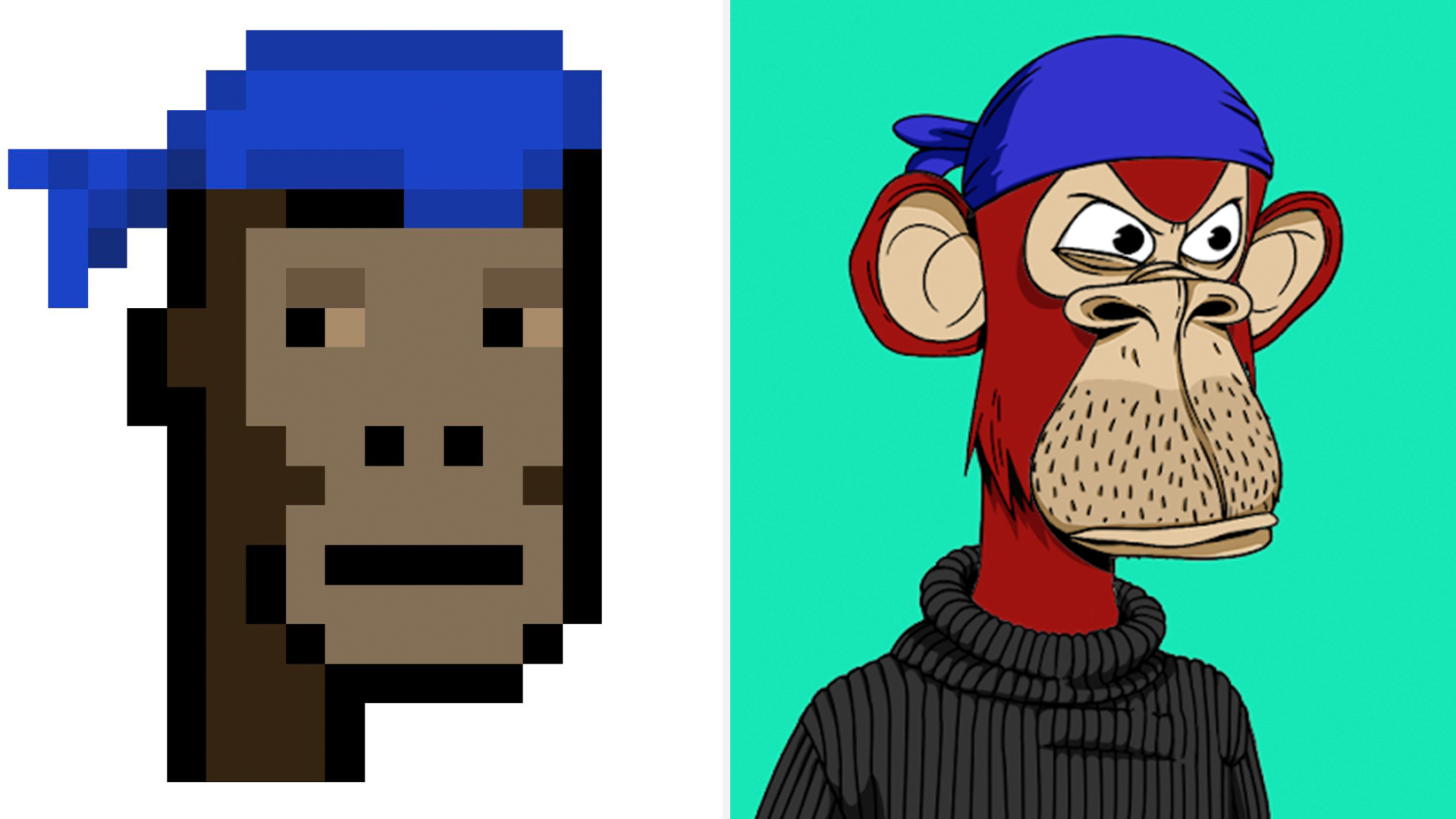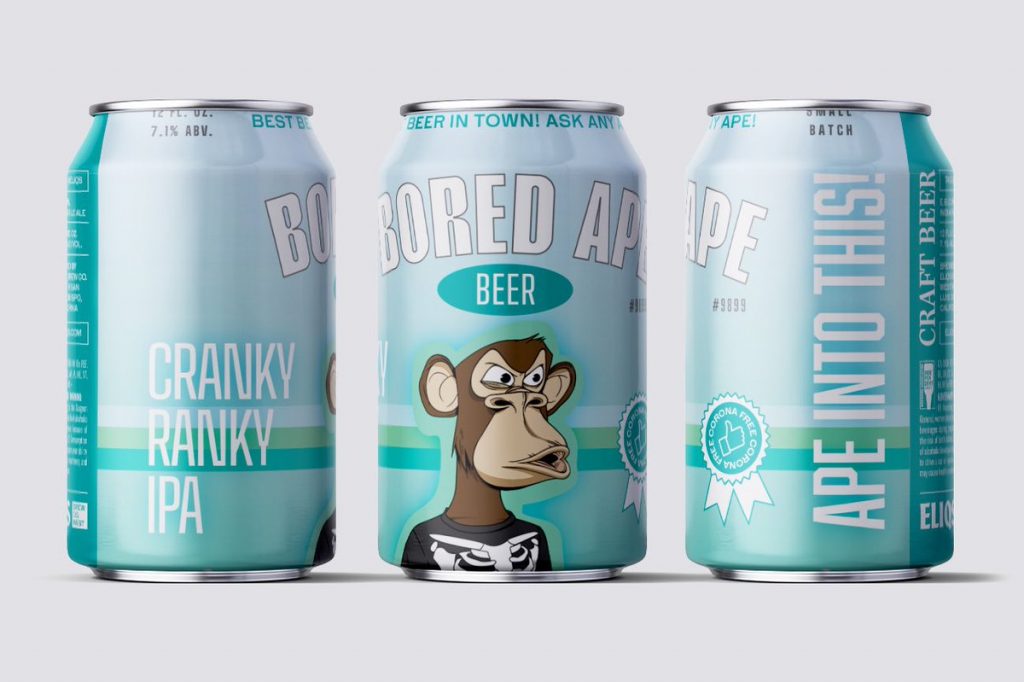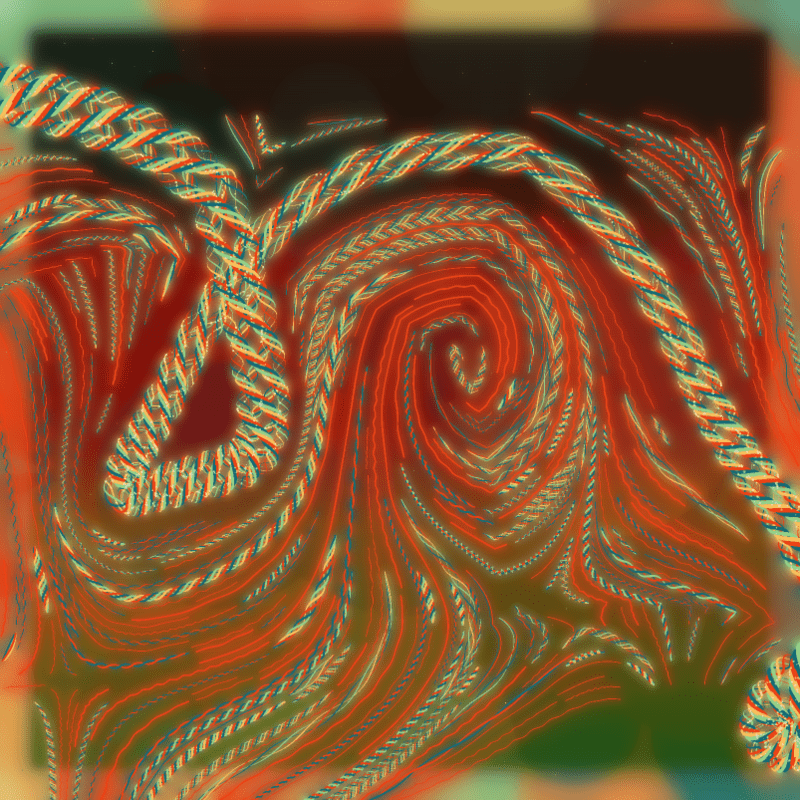Fixing the Toxic NFT Brand
Jeffrey Alan Scudder has some suggestions for how to improve the negative perception of NFTs.


What if NFTs mean we don’t need copyright anymore? Ever since the printing press enabled mechanical reproduction, “owning” an authored work has meant using copyright to control it. Copyright makes works artificially scarce, and scarcity creates economic value. But NFTs created a new kind of digital scarcity that relies on clout, rather than control. Collectors value NFTs because they represent the prestige of ownership, copyright be damned.
Not everyone has gotten the memo. Many NFT creators cling to copyright ownership and give NFT owners limited licenses to use the works represented by their NFTs. For example, Larva Labs uses the so-called NFT License for its CryptoPunks collection, giving NFT owners the right to use their Punks for noncommercial purposes, but prohibiting the sale of merchandise and use as a trademark.
Collectors value NFTs because they represent the prestige of ownership, copyright be damned.
Some Punk owners object. Most notably, Twitter user @punk4156 bought CryptoPunk #4156 on February 18, 2021 for 650 ETH (1.25 million USD) and made it a personal brand, attracting more than 100,000 Twitter followers, only to sell it on December 9 for 2,500 ETH (10.26 million USD) out of frustration with Larva Labs’s restrictive license. Of course, 9 million USD is a tidy 900% nine-month profit. But the sale may have cost @punk4156 a lot of brand equity. Did it make sense?
CryptoPunks are iconic because they sparked the NFT craze. Larva Labs created the CryptoPunks NFT collection in June 2017, and initially let people claim them for free. The market quickly took off, and today some Punks sell for millions of dollars. However, Bored Ape Yacht Club is already challenging the Punks’ dominance. Yuga Labs created the BAYC NFT collection in April 2021 and it was an instant hit, selling out immediately and spawning several related collections. By the end of 2021, Punk and Ape prices were converging. Why? One reason for BAYC’s ascendance might be a more liberal approach to licensing. Yuga Labs permit NFT owners to use and even license their Apes, which has led to the manufacture and sale of clothing, beer, and other products sporting BAYC imagery.
It’s understandable why Larva Labs would want to control the use of its works: intellectual property is twenty-first-century gold, so companies protect it reflexively. But it also doesn’t make much sense. Realistically, what is Larva Labs going to do with the copyright to ten thousand Punks? Punk owners are far more invested in their own Punks than Larva Labs could possibly be. Any economist will tell you that an efficient market allocates property to whoever values it the most. Intellectual property is no exception. Yuga Labs recognized the synergy of its interests and those of its collectors, and made that part of its business model.
At least nominally, the owner of an NFT owns the work it represents. It’s a peculiar kind of ownership, though, because the work is usually a digital file that anyone can download and reproduce. What’s more, NFT owners typically don’t own the copyright of the work their NFT represents. Copyright automatically protects just about anything you create as soon as you create it. Anyone who creates an image owns the copyright for the image they created. But NFTs have nothing to do with copyright. When you own an NFT, you own a unique copy of an intangible work. But you don’t own its copyright. You own the right to sell it.
Copyright owners can do almost anything they like with the works they’ve authored. They can license their works to anyone and everyone, and they can sell as many NFTs as the market will bear. Of course, NFT creators have a powerful incentive not to abuse their goodwill, because disappointed collectors are rarely repeat customers.
Some argue that creators should place their works in the public domain, using the Creative Commons CC0 tool. How better to troll the “right-clickers” than encouraging people to copy and distribute the works associated with NFTs? I find this approach appealing because it reflects the radical potential of the NFT market. Copyright is supposed to encourage authors to create by enabling them to sell their works for a profit. But it has never worked all that well. Sure, copyright made some successful authors rich. But it made their publishers much richer. For most authors, copyright hasn’t done anything. The problem isn’t getting people to pay—it’s getting them to notice your work in the first place.
The NFT market really isn’t so different from the conventional art market. When art collectors buy a painting or sculpture, they’re really buying an entry in an artist’s catalogue raisonné, and the physical object is just a token used to verify ownership. NFTs work the same way, but substitute a cryptographic token for a physical one.
The NFT market turns copyright on its head by reconceptualizing all authors as artists. If authors can sell their works, rather than copies of their works, maybe copyright just doesn’t matter anymore. Everyone assumes the art market is unusual. But copyright is just a side effect of mechanical reproduction. Perhaps NFTs are a back-to-the-future technology that will enable all authors to take advantage of art world economics.
Perhaps NFTs are a back-to-the-future technology that will enable all authors to take advantage of art world economics.
The art world has always been about clout. Copyright is about control. Authors sell control because it’s the only stake they have. NFTs enable all authors to sell clout, rather than control. Do NFT collectors “own” the works associated with their NFTs? No, because they can’t control how people use them. But they do seem to “pwn” those works, because they own the clout associated with the NFT. Maybe that’s enough. If people are willing to pay for clout, rather than control, authors can get paid, without having to control the use of their works, and that would be good for everyone.
For better or worse, NFTs seem to solve the problem of copyright. NFT collectors don’t own the works represented by their NFTs in any traditional sense, but it doesn’t matter because they feel like owners. Their NFTs identify them as having a special relationship to a particular work. Apparently, that’s enough. The NFT market is booming because people want to own the kind of nothing NFTs represent. The art market has always been a market in nothing—a trade in ineffable clout. The appearance of new markets in nothing should come as no surprise.
Brian L. Frye is a professor at the University of Kentucky Rosenberg College of Law and host of the podcast Ipse Dixit.
